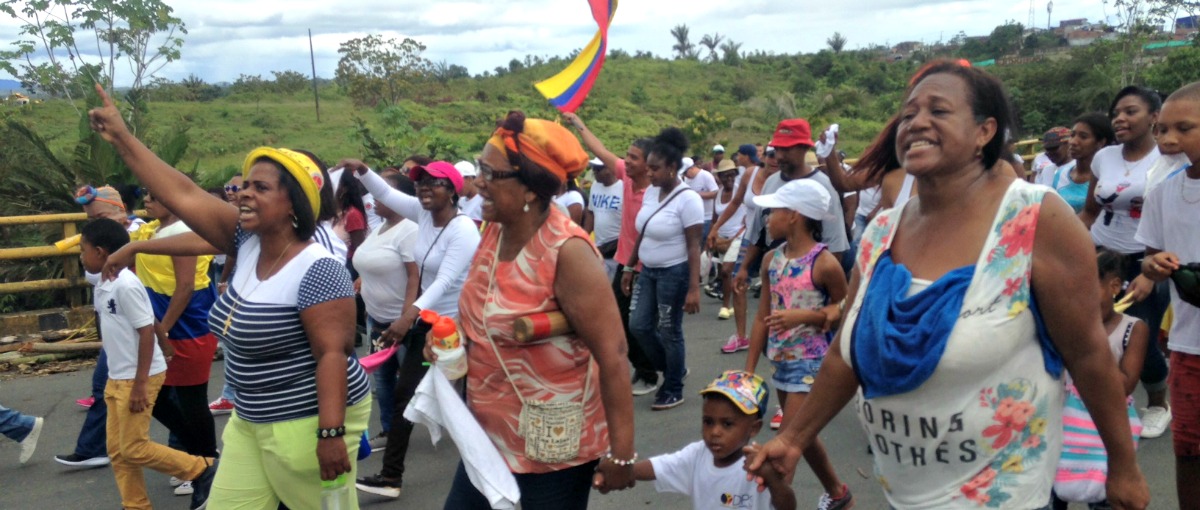[Español aqui]
From May 16 – June 6, 2017, 89 civil societies in the port city of Buenaventura called for an indefinite general strike, demanding the Colombian government provide basic infrastructure (such as sanitation, housing and clean water), public services (such as education and health care), and creation of dignified jobs. Over 80% of the residents in the largely Afro-Colombian population live in economic poverty without these public goods and services, in spite of the fact that Buenaventura is Colombia’s most important international port that generates billions of dollars of revenue. However, neoliberal privatization of the port slashed wages and put profits largely into the hands of private owners, and expansion of the port destroyed the coastal mangroves that were spawning sites for fish, ruining fishing as an occupation. The strike addressed years of government abandonment, lack of investment, and structural racism.

The strike was extremely well organized, disciplined and peaceful, and they used blockades to shut down truck traffic to the port until the government would negotiate in good faith with them. In contrast, instead of negotiating in the beginning, the government sent in the Anti-Riot Unit of the National Police (ESMAD), which on May 19th used gas, helicopters, stun bombs, tanks, and firearms against a peaceful blockade that included children, pregnant women, youth and elderly people. In subsequent days, ESMAD started firing teargas into residential areas of vulnerable populations who live in wooden houses on stilts, where teargas easily entered and threatened to asphyxiate especially babies and young children.
In a press conference on June 1, human rights defender and member of Proceso de Comunidades Negras (Black Communities Process, or PCN), Danelly Estupiñan asserted “we reject the Colombian State’s military response to an issue that could have been resolved by political means, it’s as if social protest were a crime.”

The Afro-Colombian population stuck to their strike, and the government finally had to negotiate with the strike committee, reaching an agreement on June 6. CRLN Board member Eunice Escobar, who is from Buenaventura, kept CRLN apprised of the situation and reported that the agreement has four important components:
1. The creation of a special autonomous fund with resources that are considered the patrimony of the people in Buenaventura, coming from 50% of business taxes levied on companies profiting from activities related to the port, plus $76 million dollars that the government will raise from credits with international banks, regulated by a law that should be signed in July.
2. An initial investment of COP$1.500 billion to attend to immediate needs in basic infrastructure for water, health and basic sanitation services in rural and urban areas.
3. An integral development plan for the city that includes policies and programs, institutional reform and community participation to make Buenaventura a port for the people and not simply for profit.
4. The proper investigation, prosecution and sentencing of those in the state riot police who used violent tactics to break up a peaceful protest, dropping of charges against protesters who have been criminalized, and ensuring security and protection for the many leaders that guided 22 days of this peaceful, organized and successful strike.
CRLN will keep you posted on how well the Colombian government lives up to its promises. We congratulate the many organizations who insisted that the government fulfill its responsibilities to the people of Buenaventura.
Below is an article on the strike:
https://afrocolombian.org/2017/05/31/peaceful-strikers-are-still-being-a…

